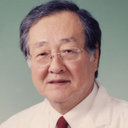Therapeutic potential of stem cells expressing suicide genes that selectively target human breast cancer cells: evidence that they exert tumoricidal effects via tumor tropism (review).
Ključne riječi
Sažetak
Breast cancer is the most prevalent cancer in women worldwide and is classified into ductal and lobular carcinoma. Breast cancer as well as lobular carcinoma is associated with various risk factors such as gender, age, female hormone exposure, ethnicity, family history and genetic risk factor-associated genes. Genes associated with a high risk of developing breast cancer include BRCA1, BRCA2, p53, PTEN, CHEK2 and ATM. Surgery, chemotherapy, radiotherapy and hormone therapy are used to treat breast cancer but these therapies, except for surgery, have many side-effects such as alopecia, anesthesia, diarrhea and arthralgia. Gene-directed enzyme/prodrug therapy (GEPT) or suicide gene therapy, may improve the therapeutic efficacy of conventional cancer radiotherapy and chemotherapy without side-effects. GEPT most often involves the use of a viral vector to deliver a gene not found in mammalian cells and that produces enzymes which can convert a relatively non-toxic prodrug into a toxic agent. Examples of these systems include cytosine deaminase/5-fluorocytosine (CD/5-FC), carboxyl esterase/irinotecan (CE/CPT-11), and thymidine kinase/ganciclovir (TK/GCV). Recently, therapies based on genetically engineered stem cells (GESTECs) using a GEPT system have received a great deal of attention for their clinical and therapeutic potential to treat breast cancer. In this review, we discuss the potential of GESTECs via tumor tropism effects and therapeutic efficacy against several different types of cancer cells. GESTECs represent a useful tool for treating breast cancer without inducing injuries associated with conventional therapeutic modalities.


